Limits on screen time
By Jan Jarvis
They have been dubbed digital natives, and they are the first generation to cut their teeth on technology.
Theirs is a world of tablets and texting; blogs, videos and all things digital.
“These are the kids who have never even known a world without cell phones,” said Brandy Roane, PhD, Associate Professor Physiology and Anatomy and a certified behavioral sleep medicine specialist.
For all the good that technology has delivered, the digital age has brought with it some serious side effects for the nation’s youth.
Excessive screen time
Insomnia, behavioral issues, speech development delays, the inability to read social cues, obesity and vision problems have been linked to excessive screen time, said Christina Robinson, MD, Assistant Professor of Pediatrics.
Preliminary results from an ongoing National Institutes of Health study involving 4,500 children found that the brain chemistry of kids who spent excessive amounts of time on screens was different from kids who did not.
Some children are so hooked that taking away screen time can lead to severe withdrawal.
“Most cases are not that extreme,” Dr. Robinson said. “But there are some children who can’t seem to function without media.”
For most children, the impact is not so obvious, but no less disturbing.
All those hours spent staring into a screen can eat away at fundamental social skills and contribute to the creation a generation ill equipped to understand basic human emotion.
“When you give kids a cell phone in place of face-to-face interaction, they never get what it means to look someone in the eye,” Dr. Roane said. “They don’t learn how to read facial expressions.”
Fading face-to-face
Among teens, face-to-face communication is fast fading in favor of texting or snapchatting. Even when they’re in the same room, kids frequently communicate through their phones, Dr. Roane said.
Not so long ago, kids discovered who they were and where they fit in by hanging out with their peers, typically a small group of neighborhood friends, said Witold Migala, PhD, Associate Professor of Biostatistics and Epidemiology.
“Now that circle of friends is everyone online,” he said.
And not everyone is so friendly. Cyberbullying is among one of the biggest threats children face online.
Stacey Vanvliet, MD, Physician Development Coach for the TCU and UNTHSC School of Medicine, said cyberbullying and the immense pressure that social media puts on teens are taking a terrible toll on their mental health.
“It’s really tough for young minds to navigate this world where there is so much pressure from social media,” said Dr. Vanvliet, who is also a hospitalist at Cooke Children’s Medical Center.
“I see multiple patients a week in the hospital for suicide attempts,” she said.
Thoughts of suicide
One study found that 48 percent of children who spent five or more hours on their phones had thought about suicide or made plans for it.
There is growing evidence that heavy screen use can lead to changes in the brain’s chemistry. Those changes are similar to those linked to addiction.
It’s easy to see how kids slip into overuse.
“They can learn about anything in just a few hours on the Internet,” Dr. Migala said. “But it is knowledge without experience.”
That lack of experience leaves adolescents especially vulnerable to the pressure of social media.
Kids are used to posting about everything they do from the moment they get up until they go to sleep, Dr. Roane said. They worry about how many likes their breakfast photo got and wonder why their video did not go viral.
“Kids are already very egocentric to start out with, and this just makes them super-egocentric,” she said. “Watching YouTube pranks just reinforces the idea that in order to get popular you have to do very weird things.”
Ways to differentiate
For generations, kids have found ways to differentiate from their parents and develop their individual identity, but it is different for teens today, Dr. Migala said.
“Once that meant growing your hair long, wearing outrageous outfits or listening to music that annoyed your parents,” he said. “Now the options are much more drastic, dramatic and available at their fingertips.”
Parents alarmed by the proliferation of social media have tried to turn down the volume and set limits. But filters are only as good as the key words parents use to set them, Dr. Roane said.
It is becoming increasingly tough to escape the impact of screens and just have a conversation, Dr. Migala said.
“As a counselor, I used to advise patients to use time in the car to have quality conversations with their children,” he said. “But then, years ago, I noticed a SUV with a screen in it and realized that one of the last safe places for talking and sharing was gone.”
Some schools have gotten involved by either requiring students to have a cell phone so they can look up information or banning cell phones in the classroom.
But for parents who are also hooked on social media, it can be difficult to set a good example for their children.
“Let’s face it, we live in a culture where everyone is always on,” Dr. Roane said. “And the truth is people frown on just disconnecting.”
What the experts do in their own homes
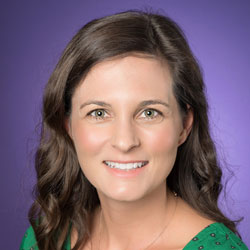 The Hospitalist
The Hospitalist
Dr. Stacey Vanvliet
Children: Jack, 2, and Ellie, newborn
For the first 18 months of Jack’s life, all screens from tablets to TVs were off-limits.
“We had absolutely no screen time with the exception of FaceTime with his grandparents a few times a week,” Dr. Vanvliet said. “Then between 18 and 24 months, we slowly introduced media, but focused on learning games.”
Media time should always be shared.
“I want to be able to interact with my son,” she said.
Dr. Vanvliet prefers reading hardbacks to E-books, which can have distracting sounds and visual effects.
“The back-and-forth that occurs when someone is reading to a child is so important and it really expands their knowledge,” she said. “If you have a computerized voice reading, you miss that conversational tone.”
 The Pediatrician
The Pediatrician
Dr. Christina Robinson
Children: Kaitlin, 4, and Jonathan, 9
Dr. Christina Robinson’s believes in setting limits from the very start.
“I’m not saying throw out technology altogether,” she said. “But we have to curtail it back.”
She closely follows the American Academy of Pediatrics Screen Time Guidelines, which recommend no screen time for children younger than age 2 and limiting screen use to no more than an hour a day up to age 5.
Now that her children are a little older, shelimits media to 2 hours per day on weekends, special occasions or holidays.
Since she limits screen time, Dr. Robinson makes a point of offering alternatives such as coloring, cooking or crafts. She also encourages her children to play outdoors and listen to music.
“Music doesn’t have to involve a screen,” she said. “I encourage them to be creative by making their own music.”
 The Sleep Researcher
The Sleep Researcher
Dr. Brandy Roane
Children: Joseph, 17, and Elijah, 14
In a family of gamers, negotiating screen time can be tricky.
When her kids were 5, she set up a token economy to help them learn how to make good decisions about screen time.
One token buys 30 minutes of screen time. They earn tokens by doing chores. There is a 90-minute daily cap on screen time. The exception: special splurge days when school is out.
Enforcing such a program takes a backbone and a timer.
“Very quickly my kids learned that if they spent all of their tokens in the morning, they would have no access to electronics in the afternoon.” Dr. Roane said. “Kids are good at finding loopholes, and there’s always one parent who caves in.”
At a glance
Screen Time Guidelines
- Children 18-24 months – Choose high-quality programming and watch it with your children.
- Children 2 to 5 years – Limit screen use to 1 hour per day of high-quality programs. Parents should co-view media with children.
- Children 6 and older – Place consistent limits on the time spent using media, and the types of media. Ensure media does not replace adequate sleep, physical activity and other behaviors essential to health.
- Designate media-free times together, such as dinner or driving, as well as media-free locations at home, such as bedrooms.
- Have ongoing communication about online citizenship and safety, including treating others with respect online and offline.
Source: The American Academy of Pediatrics. The Family Media Use planning tool can be found at HealthyChildren.org
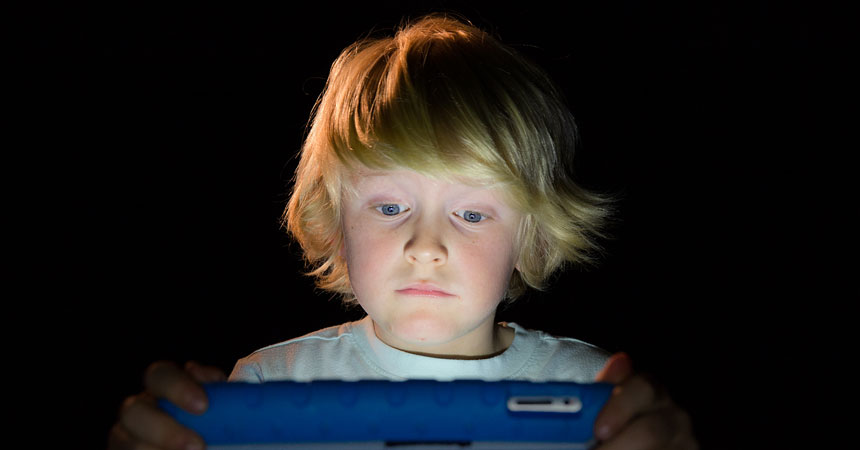
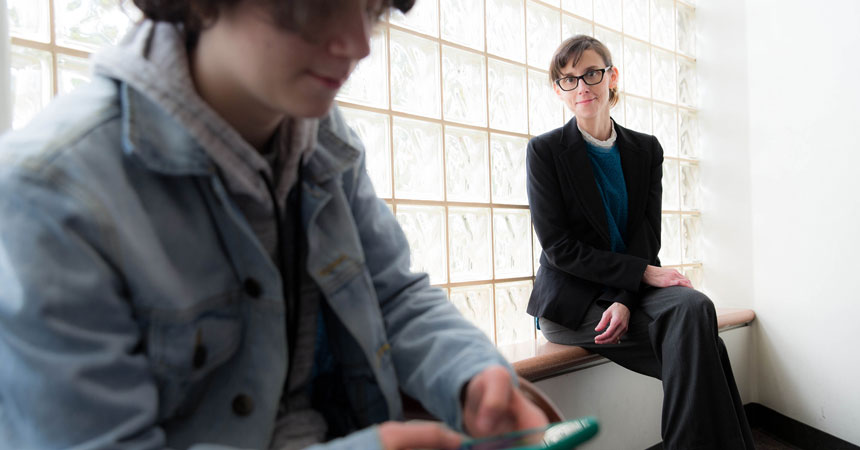
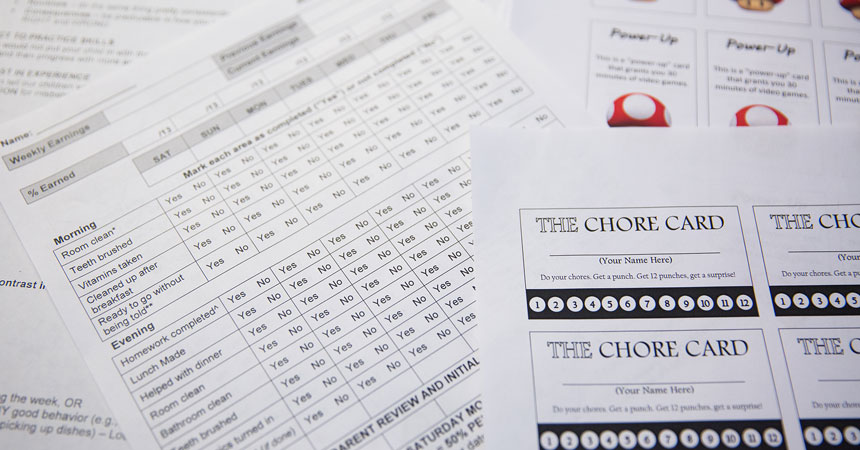
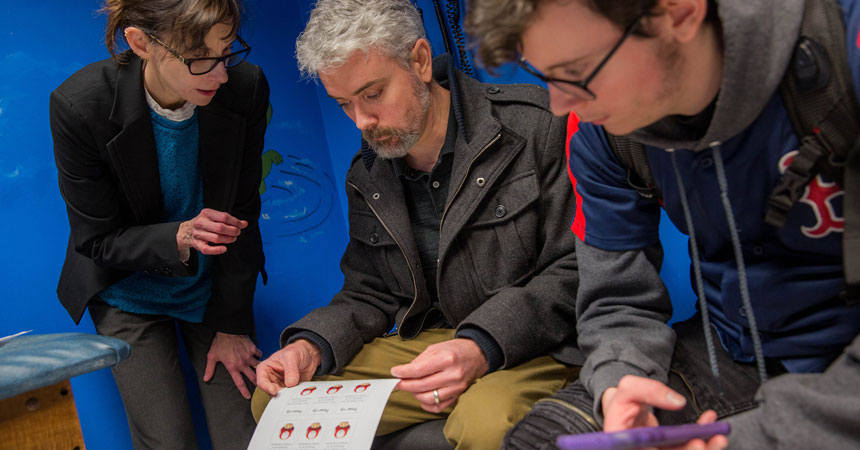






Social media